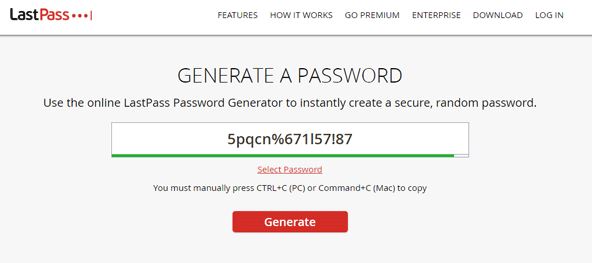October is now recognized as international CyberSecurity Awareness Month (CSAM). The campaign is used to inform all users to be more secure online; by being knowledgeable of the steps to take to protect themselves, their families, their workplace and their devices.
The month is divided by the weeks within the month and each week represents a different aspect of cybersecurity protection. Here we will look at each weeks’ campaign and learn tips to stay safe from cybercriminals.
Week 1: Give your Family a Safe Online Experience
The first week is dedicated to protecting you and your family’s digital lives. It will detail the basic cybersecurity essentials your entire family can use to protect their homes against cyber threats. Feel safe searching, browsing, shopping online and on any device.
Here are a few ways you can start improving your family’s online safety:
- Protect your accounts with strong random passwords
Managing unique random passwords for the multitude of sites and accounts we use regularly is nothing short of a headache. Too many of us fall back on risky online behaviors – using weak and easily guessable passwords, or reusing the same one over and over. A great way to keep all your passwords safe and secure is to use a password manager. The one I like to use is LastPass

- Give email extra attention
Email is the gateway to your digital life. Make sure you change your password often, be cautious of unknown senders, and never open suspicious mail or download unexpected attachments. - Multi-factor authentication (MFA)
Create a second layer of protection that only you know so that an unauthorized user will not be able to break the second-level barrier. You will also be notified immediately if someone attempts to log in to your account and fails.
Week 2: Educating Others on Cybersecurity Safety
Right now cybersecurity is a pretty hot job market yet there are not nearly enough candidates to fill the positions. Therefore, this week is all about being dedicated to educating employees in the workforce & promoting best practices.
The heart of a cybersecurity professionals’ job is to protect online data from being compromised. And as more of our personal information is stored online, the more important it becomes to step up security. Here are a few ways to become educated about cybersecurity:
- Get your Credentials
It is very important and valuable to attend courses and gain specialized knowledge in cybersecurity as 4 in 5 cybersecurity jobs require a college degree. - Get Involved
Gain knowledge and experience by getting an internship or volunteering. - Stay Relevant
Make sure you read top cybersecurity blogs and news websites as new attacks are always happening and new ways to stop them are constantly changing. You need to stay one step ahead of these hackers so being relevant is key. Following top cybersecurity personalities on Facebook, Twitter, and LinkedIn is also a good idea.
Week 3: Tips for a Safer Workplace
Week three focuses on online safety habits to keep your workplace safe from cybersecurity threats. Here are a few of the areas that they will look at during this week:
- understanding which business resources that could be targeted;
- learning how to protect your resources;
 avoid using the same passwords for multiple accounts – – if you use the same password for all your accounts once the hacker has it for one they can then break into all your other accounts, don’t make it so easy for them.
avoid using the same passwords for multiple accounts – – if you use the same password for all your accounts once the hacker has it for one they can then break into all your other accounts, don’t make it so easy for them.- how to introduce a secure password sharing practice
- setting up new password policies
- create a security challenge – – distributing a message with a strange attachment and seeing how many employees download it (those who download it fail the challenge)
- detecting when something has gone wrong – you have been cyber attacked;
- reacting quickly to minimize impact and implement an action plan; and
- learning what resources are needed to recover after a breach.
Therefore focusing your energy this week on cybersecurity education, training and awareness will help your workplace grow more secure while emphasizing risk management, resistance, and resilience.
Week 4: Safeguarding the Nation’s Critical Infrastructure
This week is focused on securing our critical infrastructure through the public and the roles they can play in keeping it safe. Did you know our day-to-day life depends on the country’s 16 sectors of critical infrastructures? Which supply us with food, water, financial services, public health, communications and power along with other networks and systems. If a cybersecurity threat were to happen to one of these systems, most of which are operated via the Internet, it could cause significant and even catastrophic consequences for our nation. That is why this week is so important for everyone, here are a few tips to help protect the nation’s critical infrastructure:
- Only open trusted sources
One of the most common ways cybercriminals try to compromise your information is through links in email, tweets, posts and online advertising. As mentioned above never open suspicious mail or download unexpected attachments. If it looks suspicious, it’s best to delete it. - Safer for me, more secure for all
What you do online affects everyone. Be careful what personal information you share online and only do on secure sites. Having good online habits will help the nation’s digital community.
It is important that everyone takes cybersecurity awareness seriously and do their part. 594 million people are affected globally each year by cybercrime. Therefore, the more knowledgeable everyone is will help reduce the risk of threats that can happen each year. So take the time to go over each week’s tips to learn how you can help protect your home, the workplace and your devices from cybercrime.
To learn more please visit one of the following links:



 avoid using the same passwords for multiple accounts – – if you use the same password for all your accounts once the hacker has it for one they can then break into all your other accounts, don’t make it so easy for them.
avoid using the same passwords for multiple accounts – – if you use the same password for all your accounts once the hacker has it for one they can then break into all your other accounts, don’t make it so easy for them.